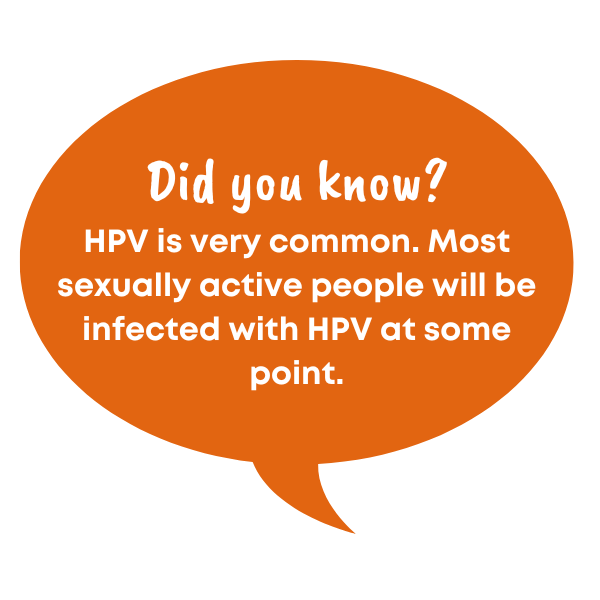Human Papillomavirus (HPV) Facts
Human Papillomavirus (HPV) is the most common sexually transmitted infection (STI) in the United States. HPV vaccines can prevent some of the health effects HPV causes.
HPV is the most common STI. There were about 43 million HPV infections in 2018, many among people in their late teens and early 20s.
There are many different types of HPV. Some types can cause health problems, including genital warts and cancers.
There are vaccines that can stop HPV related health problems from happening.
HPV is a different virus than HIV and HSV (herpes).

What are the symptoms
Most people with HPV do not know they have the infection. They never develop symptoms or health problems from it. Some people find out they have HPV when they get genital warts. Some find out they have HPV when they get an abnormal Pap test result (during cervical cancer screening). Others may only find out once they’ve developed more serious problems from HPV, such as cancers.
How can I protect myself?
You can do several things to lower your chances of getting HPV:
Get vaccinated. The HPV vaccine is safe and effective. It can protect against diseases (including cancers) caused by HPV when given in the recommended age groups.
CDC recommends HPV vaccination for:
- All preteens at age 11 or 12 years (or can start at age 9 years).
- Everyone through age 26 years, if not vaccinated already.
- Vaccination is not recommended for everyone older than age 26 years. However, some adults age 27 through 45 years who are not already vaccinated may decide to get the HPV vaccine after speaking with their healthcare provider about their risk for new HPV infections and the possible benefits of vaccination. HPV vaccination in this age range provides less benefit. Most sexually active adults have already been exposed to HPV, although not necessarily all of the HPV types targeted by vaccination.
Get screened for cervical cancer. Routine screening for people with a cervix aged 21 to 65 years old can prevent cervical cancer.
If you are sexually active: Consider a mutual monogamous relationship with a partner who has been tested and does not have HPV, get tested prior to engaging in a sexual relationship, and use condoms the right way every time you have sex.
Tell me more about testing and treatment
The HPV test checks cells for infection with high-risk HPV types.
The Pap test (also called a Pap smear or cervical cytology) collects cervical cells and looks at them for changes caused by HPV that may—if left untreated—turn into cervical cancer. It can also detect cervical cancer cells. A Pap test also sometimes finds conditions that are not cancer, such as infection or inflammation.
The HPV/Pap cotest uses a Pap test and HPV test together to check for both high-risk HPV and cervical cell changes.
Recommendations for testing are:
- People with a cervix ages 21 through 29 should be screened with a Pap test every 3 years
- People with a cervix ages 30 through 65 should be screened with a Pap every 5 years
Certain risk factors may require more frequent screening or to continue screening beyond age 65. These risk factors include:
- Being infected with the human immunodeficiency virus (HIV)
Being immunosuppressed - Having been exposed to diethylstilbestrol before birth
- Having been treated for a precancerous cervical lesion or cervical cancer
There is no treatment for the virus itself. However, there are treatments for the health problems that HPV can cause:
- Genital warts can go away with treatment from your healthcare provider or with prescription medicine. If left untreated, genital warts may go away, stay the same, or grow in size or number.
- Cervical precancer treatment is available. People with a cervix who get routine Pap tests and follow up as needed can find problems before cancer develops. Prevention is always better than treatment. For more information visit cancer.org.
- Other HPV-related cancers are also more treatable when found and treated early. For more information visit cancer.org.

Learn more STI facts and news on the CDC website.
